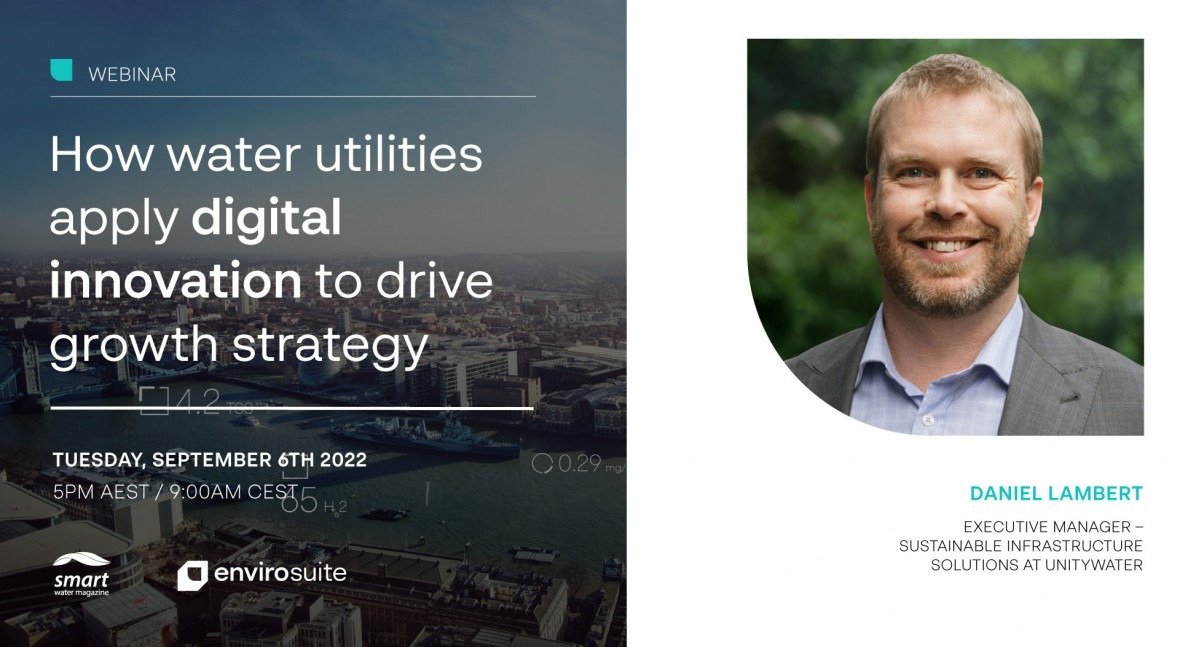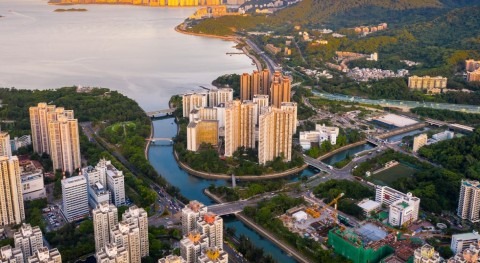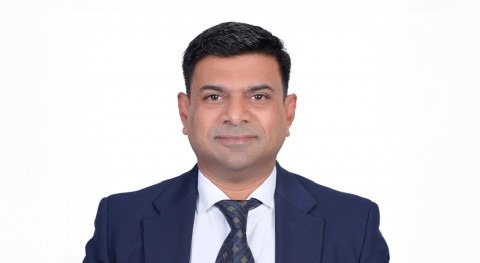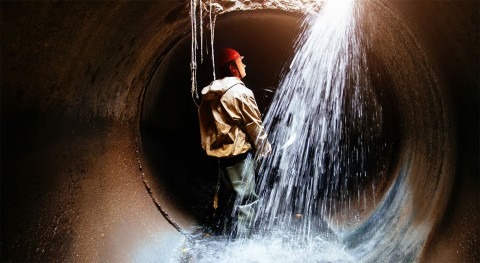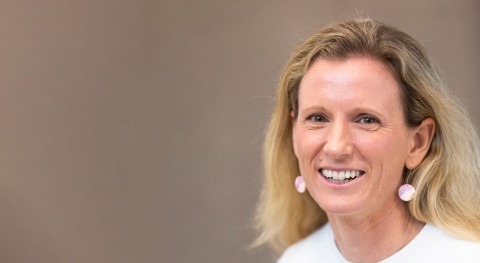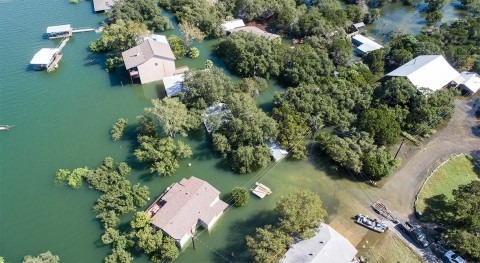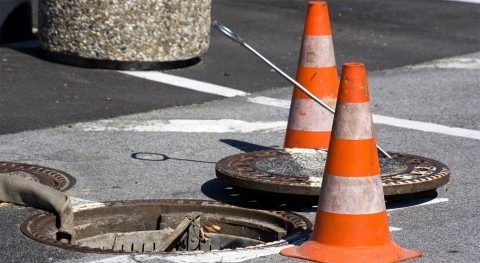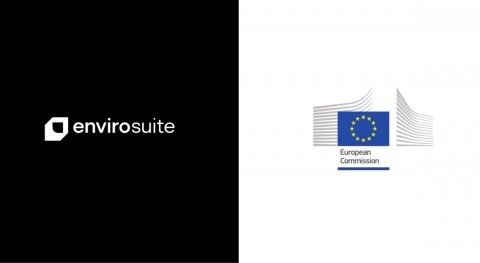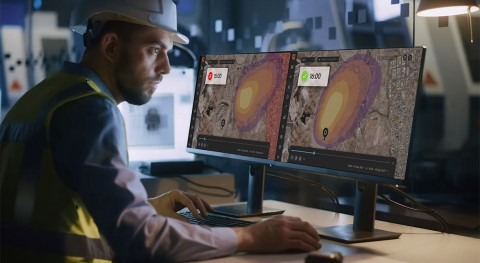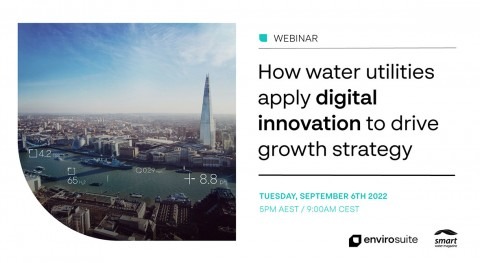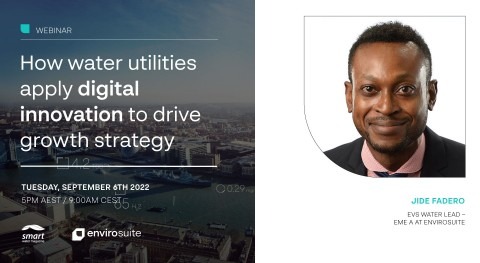Unitywater, an Australian governmental organization providing essential water supply and sewerage services, laid the foundation for their digital transformation years ago understanding that digitalization is necessary, but needs to be managed well. On September 6th, Daniel Lambert, Executive Manager of Sustainable Infrastructure Solutions at Unitywater, will be joining other water experts in a webinar organized by Envirosuite to discuss how water utilities can and should apply digital innovation to drive strategy.
We recently had the pleasure of speaking to Lambert about the benefits of digitalization for water utilities and what we should expect from the webinar.
Question: How do you see the water sector dealing with digital transformation?
Answer: If we look at water in the context of COP26, we saw the renewed urgency for the water sector to identify new business models to help address our world’s climate challenges.
According to the World Resources Institute (WRI), if nothing changes, the world will experience a 56% freshwater shortfall by 2030. Water utilities are facing increasing pressure to reduce carbon emissions and sustainably supply water to customers.
The water sector is increasingly turning to digital solutions to deliver proactive water management solutions that deliver operational, environmental and economic benefits.
Digital technologies such as remote sensing can provide vastly improved predictions of droughts and flooding, real-time monitoring of water quantity and quality within watersheds, improved water utility asset management, off-grid and localized solutions coupled with real-time water quality monitoring and "frictionless" water trading platforms.
Q: What do you think will be the key technologies in this transformation in the medium and long term?
A: Digital technologies such as connected devices (IoT), predictive analytics, and artificial intelligence are emerging as powerful tools in achieving sustainable, resilient, and equitable access to water.
The water sector is increasingly turning to digital solutions to deliver proactive water management solutions that deliver operational, environmental and economic benefits
ICT is playing a central role in achieving Sustainable Development Goal 6 through water efficiency and increasing access to water through ‘smart water management’ – smart pipes, smart meters, soil sensors, remote irrigation management systems, consumption control applications and e-billing.
There is a lot of untapped potential – especially on the wastewater side. This includes:
- Wastewater flow management from customer to river, and
- Wastewater factory approach and resource recovery
Q: How can digital technologies help mitigate risks and contribute to more resilient water system operations?
A: Digital solutions enable a shift in business model from reactive to proactive. As the water sector increases its’ ability to monitor and measure performance, it can apply data-driven learnings to drive exponential results over time. Cloud-based platforms help the water sector to gain greater visibility, track performance trends and avoid inefficiencies that can lead to waste. By identifying opportunities and implementing changes based on these insights, water utilities can build more resilient operations that are equipped to keep pace with rapidly evolving customer needs and climate realities.
By investing in digital solutions, water utilities can dramatically increase the efficiency of their water management programs. Proactive water management strategies return numerous benefits. Digital insights help reduce overall water use, which in turn, lowers costs and energy use and helps advance carbon reduction goals through reduced emissions.
Examples from Unitywater include:
- The Acoustic Leak Detection technology we have installed on our wáter trunk main infrastructure has helped us to locate and repair leaks in remote áreas that could otherwise have been undetected for months. This resulted in savings of over 30ML of water in 2021.
- The Pressure Transient Monitoring technology helps us to analyse in detail how our network is performing and to proactively optimise the way we opérate our network to reduce the risk of leaks or breaks occurring.
- End-to-end view of network: We are developing an end-to-end view of how our network is performing by monitoring data from various technologies across the network including from the bulk wáter offtake, pump stations, (SCADA) trunk mains (Acoustic leak Detection and Pressure Transient Monitoring), reservoirs (Dercerto), network meters (Takadu), reticulation network, (accelerometers) and from customers (digital meters).
- Digital Neighbourhood Plan: The DNP requires the collaboration of stakeholders from Network operations, Asset Management, Capital delivery, Development services, Metering services, Customer engagement, Revenue Assurance and Technology and Digital Solutions.
Digital solutions also help water utilities build their resilience through operations that require less water and energy. This increased resilience will be critical as we adapt to the challenge of increasing urbanization (and therefore demand), a climate with increasing extremes (of too much and too little water) and the challenge of delivering a net zero carbon future.
Q: Do you think is it important to have an internal digital capability when implementing new solutions and facing today's challenges?
Yes – it is critical for water utilities to build internal digital capability and capacity. When we talk about digital capability we aren’t just referring to skills….we are also referring to the attitudes and culture that individuals and organisations need if they are to successfully implement and operate new solutions.
What it means to be digitally capable will vary for each person in a water utility. It will depend on the requirements of their role.
At an organizational level, we need to look beyond the capability of individuals and consider the extent to which the culture and infrastructure of a utility enables and motives digital practice.
This webinar will bring a range of water experts together to discuss how digital solutions can and are being integrated into the water sector
Q: Finally, next Tuesday 6 September you will participate in the webinar organised by Envirosuite webinar on how water companies apply digital innovation to drive growth strategy. What do you think this webinar can bring to the water sector?
A: This webinar will bring a range of water experts together to discuss how digital solutions can and are being integrated into the water sector to optimize the delivery of services to improve resilience and effectively respond to climate change.
Join us on the 6th of September by registering here.


